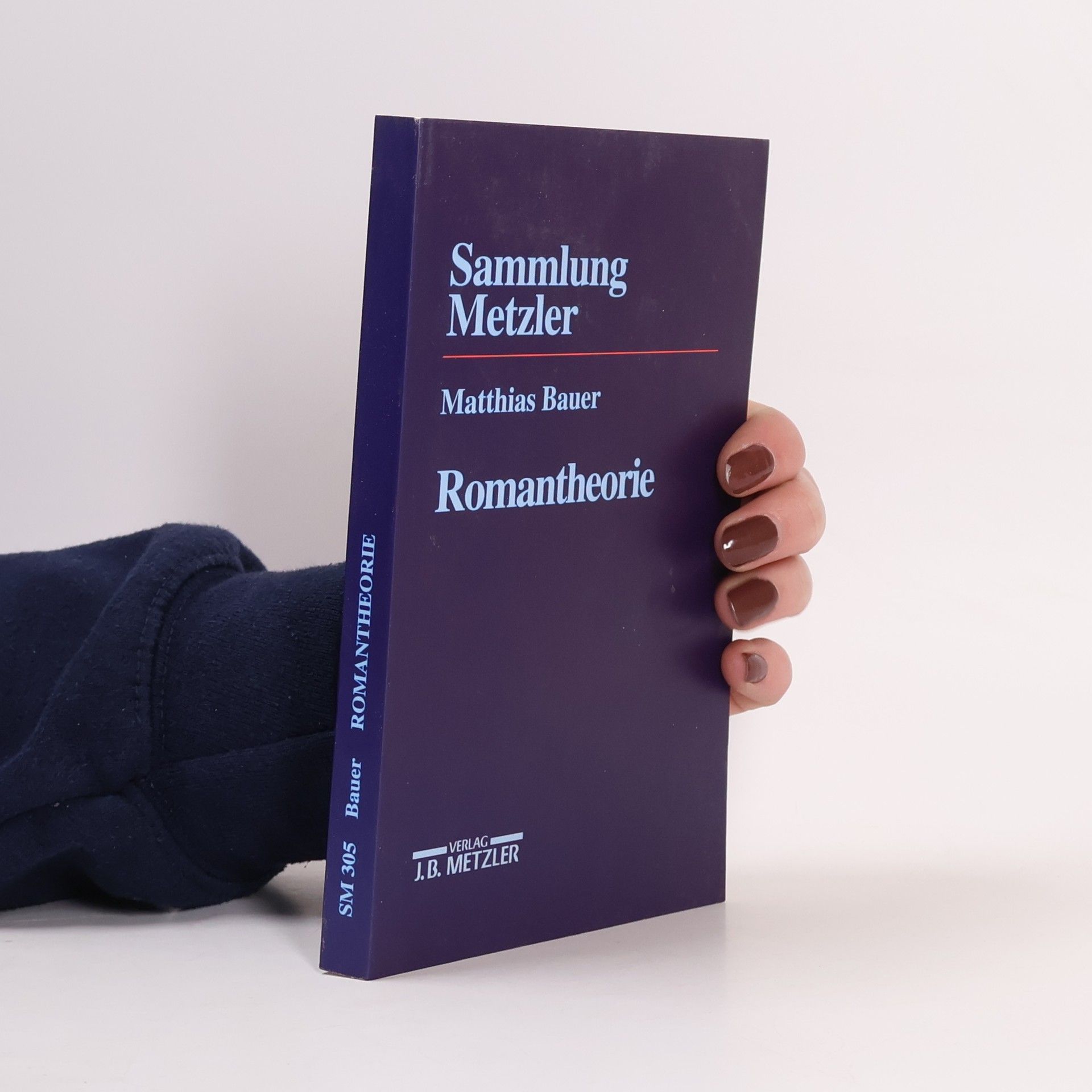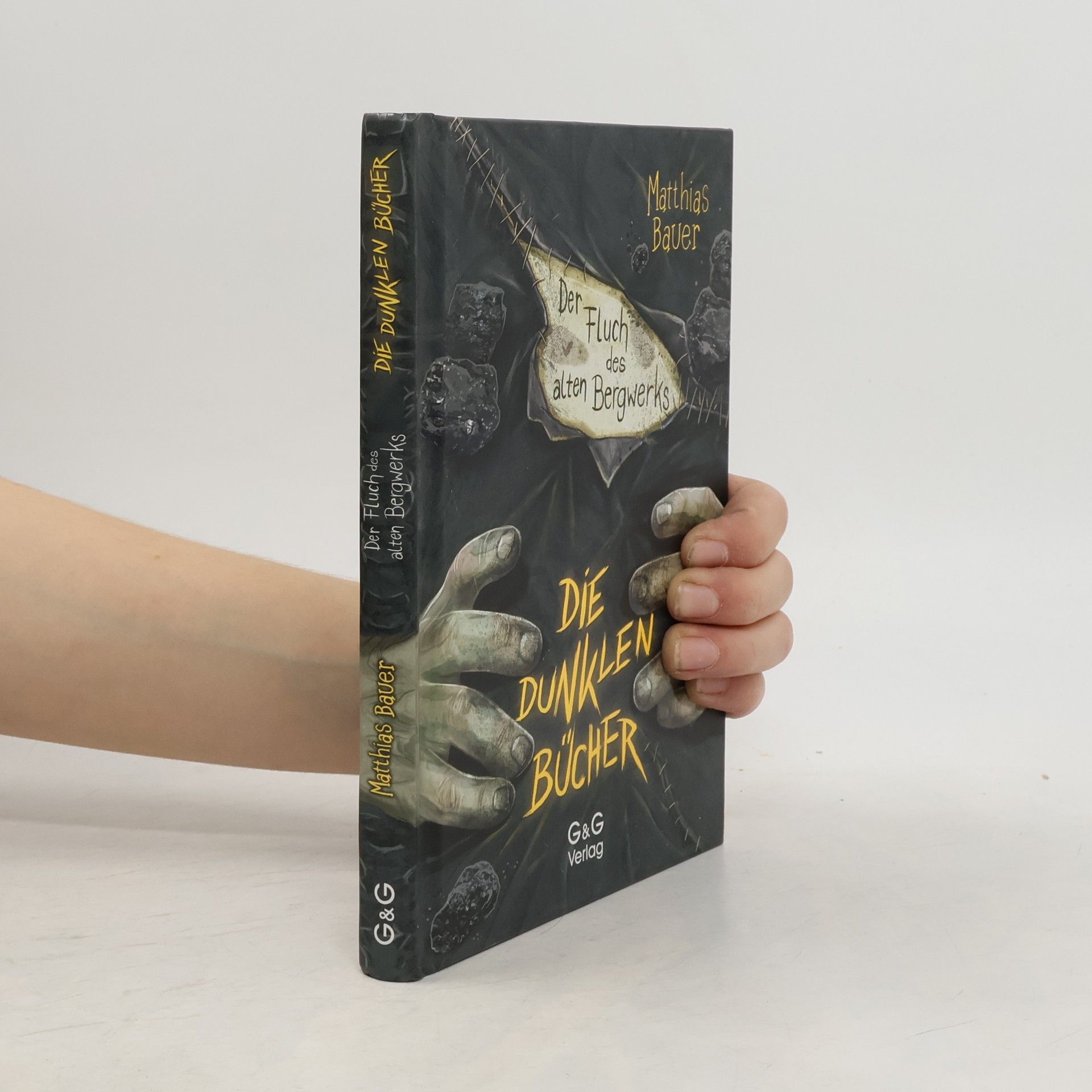Die Romantheorie der Neuzeit beginnt als Apologie. Zur Diskussion steht der ethische und ästhetische Wert einer Gattung, die aus dem Rahmen der überlieferten Poetik fällt; zudem hat der Roman die Vorstellungen dessen, was Literatur sein kann, grundlegend verändert.
Matthias Bauer Livres
Ce duo d'auteurs explore les sombres secrets de l'histoire à travers des récits captivants qui mêlent mystère historique et intrigues glaçantes. Leurs œuvres, acclamées par la critique et les lecteurs, se distinguent par des intrigues complexes et un style engageant qui transporte le lecteur dans le passé. Avec un talent pour le suspense et l'atmosphère, ils créent des récits qui révèlent des motivations cachées et des événements anciens d'une surprenante pertinence contemporaine. Leurs contributions démontrent la puissance des drames historiques pour divertir et faire réfléchir.






LESEZUG/2. Klasse - Lesestufe 2: Die Mumie - Eine Nacht voller Abenteuer
- 48pages
- 2 heures de lecture
Ella und Tom lieben es am Dachboden ihres Großvaters zu stöbern. Dort gibt es zwischen alten Reiseandenken immer etwas Neues zu entdecken. Doch an diesem Abend geschieht etwas Unglaubliches: Als ein mysteriöses Kästchen zerbricht, erscheint die Mumie Ramenophis. Mit ihr tauchen die Kinder in eine Nacht voller Abenteuer. Gelingt es ihnen alle Herausforderungen zu bewältigen? Matthias Bauer verbindet in diesem mitreißendem Erstleserbuch Abenteuer, Freundschaft und einen Hauch von Geschichte und mit den lebendigen Illustrationen von Robert Dunn wird Lesen zum Erlebnis! Dieses Buch gehört zur 2. Klasse - Lesestufe 2 und ist speziell auf die Lesekompetenz junger Leser abgestimmt. Die Lesestufen von G&G unterstützen Kinder mit klar strukturierten Texten, verständlichem Wortschatz und altersgerechten Geschichten – mit Belonungsstickern für motiviertes und selbstbewusstes Lesen!
Die dunklen Bücher - Doppelband
- 176pages
- 7 heures de lecture
Gruselfans, aufgepasst! In diesem exklusiven Doppelband erwarten euch zwei packende Geschichten von Matthias Bauer, die euch bis zur letzten Seite den Atem rauben werden. Das Grauen am See: Oskar, Lena und Philipp freuen sich auf ein unbeschwertes Ferienlager – doch am dunklen See lauert ein uraltes Geheimnis. Ein verlassenes Hotel, ein unheimlicher Nebel und mysteriöse Schatten fordern ihren Mut heraus. Werden sie das Rätsel lösen, bevor es zu spät ist? Der Fluch des Bergwerks: Augusta und ihre Familie verbringen ihren Sommer auf einer abgelegenen Hütte, wo unheimliche Geräusche sie in das verfluchte Bergwerk führen. Doch was wie eine Legende begann, wird bald zu einem tödlichen Albtraum. Der Fluch ist real – und er hat sie bereits im Griff. Die fesselnden Illustrationen von Timo Grubing ergänzen die Geschichten und verstärken das unheimliche Leseerlebnis. Die Buchreihe „Die dunklen Bücher“ richtet sich an mutige Leserinnen und Leser ab 9 Jahren, die sich gerne in spannende und unheimliche Geschichten vertiefen. Mit dem Ziel, die Lesekompetenz auf coole Art zu stärken, bieten diese Bücher Gänsehaut und Nervenkitzel. Diese Reihe ist ideal für junge Leserinnen und Leser, die sich gerne gruseln und dabei ihre Lesefähigkeiten verbessern möchten.
Der Abschluss der „Reiche Ernte“-Reihe bietet mit Chris Scheuer und Autor Matthias Bauer faszinierende Geschichten voller Alptraumwelten. Von unheimlichen Hotels bis hin zu apokalyptischen Szenarien fesseln die überraschenden Enden und beeindruckenden Bilder. Inklusive einer Zusatzstory als Poster!
Vier Freunde entdecken ein geheimnisvolles, verlassenes Haus mit einer Bibliothek, die nur bei Vollmond zugänglich ist. In der fantastischen Vollmondbibliothek lernen sie viel über Vampire, was ihnen bald von großem Nutzen sein wird, als in ihrer Stadt unheimliche Ereignisse geschehen.
Oskar, Lena und Philipp verbringen einen unbeschwerten Sommer im Ferienlager, bis unheimliche Ereignisse ihre Idylle stören. Ein verlassenes Hotel, geheimnisvolle Lichter und plötzlich auftauchender Nebel wecken ihre Neugier. Die Freunde wollen dem „Grauen am See“ auf den Grund gehen und geraten dabei in große Gefahr.
Der Hashtag als interdisziplinäres Phänomen in Marketing und Kommunikation
Sprache, Kultur, Betriebswirtschaft und Recht
Das Hashtagging, also der Prozess, Hashtags zu setzen, ist ein noch recht neuartiger Prozess der digitalen Verschlagwortung. Die Funktion des Hashtags geht dabei weit uber den ursprunglichen Zweck der Verschlagwortung hinaus: Grundsatzlich ist der Hashtag zunachst tragendes Element gegenwartiger politischer Debatten- und Diskussionskultur.
Musikfestivals und Open-Air-Veranstaltungen
Wirtschaftsfaktor – Krisenkommunikation – Nachhaltigkeit
Abstract: Im vorliegenden ersten Band der Reihe Studien zum Festivalmanagement liegt der inhaltliche Schwerpunkt auf drei Aspekten, die im Jahr 2021 in Masterarbeiten an der IST-Hochschule für Management, Düsseldorf, behandelt wurden: Anne Barth untersucht Festivals im ländlichen Raum als regionalen Wirtschaftsfaktor. Sie zeigt, dass Musikfestivals ein ganz eigenständiger Wirtschaftsfaktor für ländliche Regionen sind oder sein können. Die Wirtschaft vor Ort profitiert sowohl von den Festivalbesuchern als Tourismusgästen als auch durch die Beauftragung von regionalen Dienstleistern. Die Krisenkommunikation bei Unwetterlagen während Großveranstaltungen, konkret: während Pop- und Rock-Festivals in Deutschland von 2015 bis heute, steht im Mittelpunkt der Studie von Carmen Sievert. Sie erarbeitet anhand der Theorie zur Krisenkommunikation und einer Analyse der Medienberichterstattung über vier Fallbeispiele konkrete Handlungsempfehlungen für künftige Veranstaltungen. Eine Analyse von Nudging als
So hatte sich Augusta den Familienurlaub auf der einsamen Almhütte nicht vorgestellt! Die beschauliche Ruhe wird alsbald von seltsamen und überaus unheimlichen Begegnungen überschattet: Woher kommen die klagenden Laute in der Nacht? Wer ist diese Gestalt im altertümlichen Gewand eines Grubenjungen, mit dunklen Augen im totenblassen Gesicht? Mutig finden Augusta, Julia und Tom immer mehr heraus über die Sage und den Fluch des alten Bergwerks. Bis sie selbst in eine gefährliche Falle im dunklen Stollen des Bergwerks tappen ...
Europa ist nie ein politisches oder kulturelles „Elitenprojekt“ gewesen. Europa ist vielmehr in den Zwischenräumen von vermeintlich „hoher“ und „niederer“ Kunst zu verorten. Das belegen die literatur- und sprachwissenschaftlichen sowie kulturtheoretischen Beiträge in diesem Band. Sie zeigen, dass ästhetische Darstellungen der Moderne und Postmoderne von Hugo von Hofmannsthal bis Sibylle Lewitscharoff immer wieder auf zeitgenössische Narrative und Figurationen Europas aus der Populär- und Alltagskultur zurückgreifen. Gleiches gilt für Friedrich Nietzsches Philosophem des „guten Europäers“ oder das europäische Gegenwartskino. Umgekehrt demonstrieren Phänomene des Sprachwandels – wie die Entwicklung des Begriffs der Hanse – eindrucksvoll den populären Beitrag zu einem offenen und durchlässigen Europa. Kulturpoetische Vis-à-vis-Lektüren Mumbais und Europas sowie Museums- und Ausstellungsprojekte im deutsch-dänischen Grenzgebiet weisen in die gleiche Richtung. In ihnen wird ein offenes Europa sichtbar, ein interkultureller und medialer Übergangsraum zwischen High und Low.
